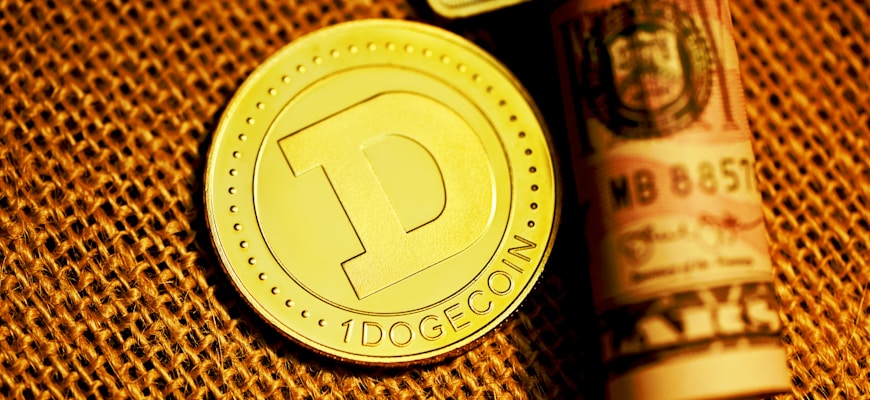Privacy Coins Face Crackdown: Will Monero and Zcash Survive?

- Understanding the Crackdown on Privacy Coins
- The Battle Between Privacy and Regulation
- Monero and Zcash: The Targets of Government Scrutiny
- The Future of Privacy Coins in a Surveillance Society
- Exploring the Legal and Ethical Controversies Surrounding Monero and Zcash
- Privacy Coins Under Fire: What Lies Ahead for Monero and Zcash
Understanding the Crackdown on Privacy Coins
The crackdown on privacy coins such as Monero and Zcash has raised concerns among investors and cryptocurrency enthusiasts. These coins are known for their strong privacy features, making it difficult to trace transactions and identify users. As a result, regulators and law enforcement agencies have expressed worries about their potential use in illicit activities such as money laundering and terrorist financing.
Privacy coins have faced increased scrutiny from governments around the world, with some exchanges even delisting them to comply with regulations. This has put pressure on the prices of these cryptocurrencies, leading to uncertainty among investors. Despite these challenges, supporters of privacy coins argue that they play a crucial role in protecting users’ financial privacy and security.
The future of privacy coins remains uncertain as regulators continue to tighten their grip on the cryptocurrency market. It is essential for projects like Monero and Zcash to work closely with regulators to address their concerns and ensure compliance with existing laws. Failure to do so could result in further restrictions and even bans on privacy coins, jeopardizing their survival in the long run. As the debate around privacy coins intensifies, it is crucial for investors to stay informed and make decisions based on the evolving regulatory landscape.
The Battle Between Privacy and Regulation
In the ongoing debate surrounding privacy coins like Monero and Zcash, there is a constant battle between the need for privacy and the demands for regulation. On one hand, privacy coins offer users a level of anonymity and confidentiality that traditional cryptocurrencies do not. This has made them popular among individuals looking to keep their financial transactions private. However, this very anonymity has also raised concerns among regulators who fear that these coins could be used for illicit activities such as money laundering and tax evasion.
As a result, regulatory bodies around the world have been cracking down on privacy coins in an attempt to bring them under the same regulatory framework as other cryptocurrencies. This has led to increased scrutiny of exchanges that list privacy coins, as well as calls for stricter KYC (Know Your Customer) and AML (Anti-Money Laundering) regulations to be applied to transactions involving these coins.
The battle between privacy and regulation is likely to continue for the foreseeable future, as both sides make compelling arguments for their positions. Privacy advocates argue that the right to financial privacy is a fundamental human right that should not be compromised, while regulators argue that the need to prevent criminal activity and protect national security trumps individual privacy concerns.
For privacy coins like Monero and Zcash, the outcome of this battle will be crucial. If regulators are successful in imposing strict regulations on these coins, it could significantly impact their popularity and value in the cryptocurrency market. On the other hand, if privacy advocates are able to make a convincing case for the importance of financial privacy, these coins could continue to thrive despite regulatory pressure.
In the end, the future of privacy coins like Monero and Zcash will likely depend on how well they are able to navigate the complex landscape of privacy and regulation. Finding a balance between privacy and compliance with regulatory requirements will be key to their survival in the long run. Only time will tell whether these coins will be able to weather the storm and emerge stronger on the other side.
Monero and Zcash: The Targets of Government Scrutiny
Privacy coins like Monero and Zcash have recently come under increasing government scrutiny due to their ability to facilitate anonymous transactions. These coins have been a target for regulators and law enforcement agencies around the world who are concerned about their potential use in illicit activities.
Monero, known for its strong privacy features, has faced pressure from governments seeking to regulate or ban its use. Authorities argue that the anonymity provided by Monero makes it attractive to criminals looking to launder money or engage in other illegal activities. As a result, exchanges and other platforms have been pressured to delist or restrict Monero trading.
Zcash, another privacy coin, has also faced similar challenges. Despite offering optional privacy features that allow users to shield their transactions, Zcash has drawn the attention of regulators who worry about its potential for misuse. Some governments have taken steps to limit the use of Zcash, leading to uncertainty in the cryptocurrency community.
The Future of Privacy Coins in a Surveillance Society
In a society where surveillance is becoming increasingly prevalent, the future of privacy coins such as Monero and Zcash is being called into question. These digital currencies have gained popularity for their ability to provide users with a high level of anonymity and privacy when conducting transactions. However, as governments and regulatory bodies around the world crack down on the use of privacy coins due to concerns about money laundering and illicit activities, the future of these cryptocurrencies is uncertain.
Privacy coins have faced criticism from law enforcement agencies who argue that their anonymity features can be exploited by criminals to evade detection and launder money. This has led to calls for stricter regulations and even outright bans on privacy coins in some countries. As a result, the value and viability of Monero and Zcash have come under scrutiny, with some investors and users growing increasingly wary of the risks associated with using these cryptocurrencies.
Despite the challenges facing privacy coins, proponents argue that the demand for financial privacy will continue to drive the use and development of these digital assets. In an era where data breaches and privacy violations are becoming more common, many individuals are turning to privacy coins as a way to protect their financial information from prying eyes. As a result, the future of Monero and Zcash may ultimately depend on the balance between regulatory pressure and consumer demand for privacy-focused technologies.
While the fate of privacy coins in a surveillance society remains uncertain, it is clear that these digital assets will continue to play a role in the evolving landscape of cryptocurrency. Whether Monero and Zcash will survive in the face of increased regulatory scrutiny and public skepticism remains to be seen. However, as long as there is a demand for financial privacy and anonymity, privacy coins are likely to remain a prominent feature of the cryptocurrency ecosystem.
Exploring the Legal and Ethical Controversies Surrounding Monero and Zcash
In the realm of privacy coins, Monero and Zcash have been at the center of legal and ethical controversies. These cryptocurrencies have faced scrutiny from governments and regulatory bodies due to their anonymity features, which have raised concerns about their potential use in illegal activities such as money laundering and terrorist financing.
One of the main legal challenges facing Monero and Zcash is their perceived association with criminal activities. Law enforcement agencies argue that the privacy features of these coins make it difficult to track illicit transactions, making them a preferred choice for criminals looking to conceal their financial activities. As a result, there have been calls for increased regulation of privacy coins to prevent their misuse.
On the ethical front, privacy advocates argue that the anonymity provided by Monero and Zcash is essential for protecting individual privacy rights. They believe that everyone should have the right to financial privacy and that these coins offer a way to achieve that. However, critics counter that this privacy can also be exploited by bad actors for nefarious purposes, making it a moral dilemma.
Despite these controversies, both Monero and Zcash have continued to operate and gain popularity among users who value privacy and anonymity in their financial transactions. The future of these coins remains uncertain as they navigate the legal and ethical challenges that come with being at the forefront of the privacy coin movement.
Overall, the legal and ethical debates surrounding Monero and Zcash highlight the complex nature of balancing privacy rights with the need for financial transparency and accountability. As regulators and policymakers grapple with how to address these issues, the fate of privacy coins like Monero and Zcash hangs in the balance.
Privacy Coins Under Fire: What Lies Ahead for Monero and Zcash
Privacy-focused cryptocurrencies like Monero and Zcash have come under scrutiny in recent times, with regulators and authorities expressing concerns about their potential use in illicit activities. This has led to increased pressure on these privacy coins, with some exchanges even considering delisting them to avoid regulatory backlash.
Monero, known for its strong privacy features that obfuscate transaction details, has been a particular target of regulators due to its perceived anonymity. On the other hand, Zcash offers users the option of shielded transactions, which provide enhanced privacy by encrypting transaction information. However, this very feature has raised red flags among authorities who fear it could be exploited for illicit purposes.
Despite the challenges they face, both Monero and Zcash have a dedicated community of supporters who believe in the importance of financial privacy. They argue that privacy coins serve a vital role in safeguarding individuals’ right to confidential transactions without the risk of surveillance or censorship. As such, the future of Monero and Zcash remains uncertain, with the outcome largely dependent on how they navigate the regulatory landscape and address concerns about their privacy features.



